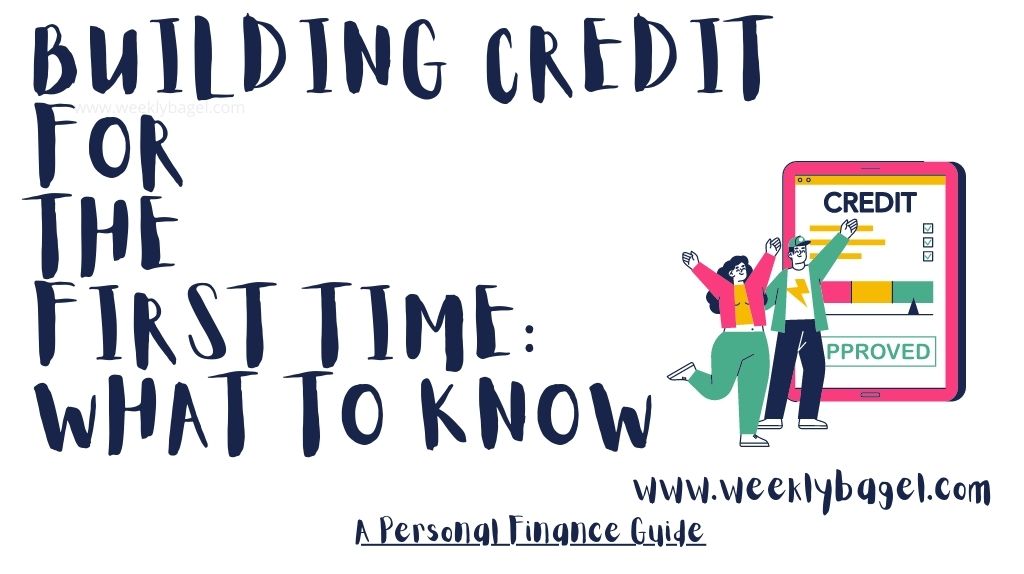
Unless you are a part of the American super rich class, you cannot afford some things without credit. This is because some necessities like a shelter or a means of transportation is expensive to pay for in cash. Without a good credit, you will need to save to have access to these.
And, guess what?
For the average American working class adult, it takes awhile to save up for a car or a house. Hence, why credit is as important as cash in our beloved country- the United States Of America. We, the working class, cannot do without it. This is because the purpose of credit is to make you worthy of affording things by borrowing and paying back later.
Our credit history are used to access such worthiness to borrow. I know it sounds cringy, when it is put like that. But, it is the reality for most American working class adults. Would you not agree?
Anyways, it is important one starts building credit immediately one becomes an adult. This is because it makes you a less risky customer whenever you apply for a loan to get a car, an education or a house. People without a credit history are deemed a risky investment for lenders. This is regardless of whether their monthly income is high or not.
Finally, you build your credit by improving your credit score and establishing credit history over a period of time. Any potential can determine your credit by accessing your credit report (history) and credit score. Before I proceed though, let me give a summary about credit report and credit score for those who do not know about them.
What Is Credit (Credit Score and Credit Report)
Credit is an ability to have access to goods and services without paying for them, based on a mutual understanding that any loan borrowed for such good and services will be paid back in an agreed time. When you have a good credit, it means you can be trusted to do this without risk of not paying back in the future.
Otherwise, it means you have bad credit because you are not reliable.
A credit score is a ranking used to access your credit worthiness. By credit worthiness, I mean how risk of a borrower you are, when it comes to borrowing money in the past and paying it back timely. Whenever you make payments towards a debt, the payments are reported to the three American credit bureaus.
These three credit bureaus- Equifax, Experian and TransUnion, create a consumer report around your loans and debts payments. This consumer report is known as a credit report. It includes how timely you make your payments, missed payments, debt size and debt length. When you pay your debts on time, good reports are compiled.
Otherwise, derogatory remarks are made on your credit report for potential lenders to see.
Additionally, credit score companies use the credit reports made by these three bureaus to reward you. You are rewarded by being placed on a credit ranking system of 300 to 850. There are three different kinds of ranking which include:
- FICO score
- Vantage score
- Regular credit score
To simplify, a bad credit report means you have bad credit. This is often reflected on a credit score. A bad credit score shows you are a high risk borrower.
Which is more important credit score or credit report
A credit report is more important than a credit score, when it comes to establishing credit. This is because it contains your credit history. While a credit score is just a rank, it does not show how reliable you were in the past paying back debts. A credit report is detailed enough to let any potential lender know your credit worthiness.
So, why do we make a big deal of credit score?
We make credit score a big deal, because companies like rentals or car dealerships use them to quickly access the risky level of a borrower before doing business with him or her. Now, it does not necessarily mean the credit history of the customer is great. It just means you can either be trusted or not.
You can read What You Need To Know About Credit And Credit score to understand how these two affect your life as an American adult.
How Can Fast You Build Credit With No Credit History
So, how fast can you realistically build credit?
It takes about 6 months to build credit. To build a good credit, it takes 18 consecutive months. In other words, it takes that long to compile a credit report of good consumer behavior.
When you are starting out though, you probably do not have any credit history. As a result, you will not have a credit score. This is especially, when you have not started paying bills. Bill companies tend to report to a credit bureau.
As long as you are making payments toward a consistent debt or bill, you will establish credit with time. Whether this credit is good or bad, depends on whether you miss payments or nullify your agreement to pay your debt in full at an agreed time.
Building Credit For the First Time
There are two ways to build credit for the first time. You can either establish credit quickly with a credit card. Or, you can build a credit without a credit card.
Here is what I mean.
Building Credit With A Credit Card
You can quickly establish credit with no credit history with a beginner’s credit card. A beginner’s credit card is structured to help you build credit history fast. It does not have annual fee and junk fee associated with you.
In addition, the credit limit for such a card is low. When you go for such a credit card, aim for one with a spending limit of $1000. With such a credit limit, you need to only spend about 30% on a credit card to build credit.
Let me elaborate more for you, my dear reader.
If you spend 30% a year on a credit card with $1000 spending limit, it is $300. You can get this $300 debt repayment spread across ten to twelve months at $25 monthly installments. For each payment made, the credit card company will report it to a credit bureau. The credit bureau compiles a detailed report of each monthly payment.
And, a credit score company rewards each payment with some points.
As long as you make timely payments toward your credit card debt, your credit score will keep increasing monthly. Check out what not to do with your credit card in order to avoid destroying your credit score trying to build a credit history.
Which credit card is best for a beginner To Build Credit
The best credit card for a beginner to build credit is a secured credit card. A secured credit card is a credit card which requires you to put some money as collateral for expenditures. To simplify, it is just a credit card where you deposit some money into the account to be used by the credit card company in case of non-payment of debt.
As a result, you can never be in debt with a secured credit card. This is because the amount of your cash deposit serves as your credit card spending limit. In other words, you cannot max out more than you have deposited as a collateral in the credit card account.
Why is this type of credit card best for building credit, my good reader?
It helps you build credit without getting much into debt, which results from fees and high interest rates. Some secured credit cards do not have annual fees. You can read What Beginners Need To Know About Credit Cards for what to ask before applying for a secured credit card.
Finally, big retail stores offer credit cards for building and repairing credits. Some of these credit cards only allow store purchases making it hard to accumulate debt elsewhere. A notable example is the Sam’s Club credit card. It has no membership, annual or maintenance fee, therefore making a good credit card for people wishing to build their credit.
How Fast Will A Credit Card Build Credit
Building credit with a credit card will establish your credit within six months. Your credit score may reflect this credit history as 580 to 669 for FICO® Scores or 601 to 660 for Vantage scores. It depends on some factors such as making timely and consistent payment towards the agreed monthly debt.
A Good to an Excellent credit score may take 12 to 18 months of consistent debt payment. This is why I recommend using a secured credit card which does not create additional debts for you, besides your expenditures. By additional debts, I refer to junk and hidden fees usually charged by credit cards.
You can read How Credit Card Companies Target College Students As Money Cows to get a grasp of the tactics used by some credit card companies to keep customers in debt. It is not personal. You just have to understand credit card companies are out to make profits. Be aware of that, when using a credit card to build your credit history.
Building Credit Without A Credit Card
There are alternatives to opening a credit card to build credit. You do not necessarily need a credit card, since you build credit by spending money. By spending money, I refer to paying your debts on time. Therefore, getting your monthly bill companies to report to the credit bureau will build your credit.
Besides, payments toward already existing debts like car note, mortgage or student loan debt establish credit for you. If you have any other debt you are paying monthly, you can call the company to inquire whether they report to a credit bureau. If they do, you are building credit making payments toward such a debt.
Monthly bills like rent, phone bills or insurance payment are not necessarily reported to a credit bureau. You can always call to inquire about them. However, reporting these kinds of monthly payments are optional.
How long does it take to build credit without a credit card
It takes about three to six months to build a credit without a credit card. A good credit history should have at least six months of credit report. It makes you eligible for certain loans and credit cards.
Usually, what lenders look for in borrowers are customers with a long history of making consistent payments to their debts. It shows one’s financial responsibility and credit worthiness. This is especially an impeccable credit history not blemished by missed payments.
Whether you build credit with a credit card or not, you will have a credible credit history by the end of six months. As a result, your credit score will reflect how good of a borrower you are. This is why it is a good idea to work on building credit for the first six months, prior to applying for loans.
To conclude this article, building credit for the first time requires patience. While you are at it, be sure not to screw up your credit history by missing payments on debts which are reported to a credit bureau. It is one of the things which will ruin your credit score and impact your credit history negatively. So, be aware of this fact when establishing your credit.




 Sam’s Club Credit Card: What You Must Know
Sam’s Club Credit Card: What You Must Know